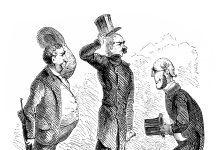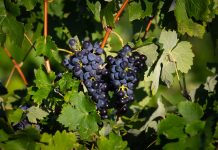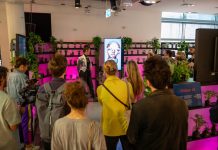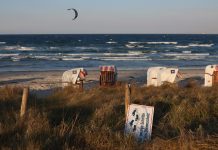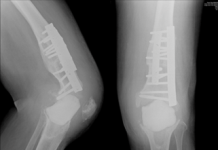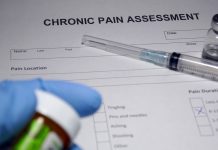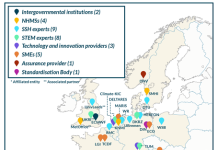Open Access Government produces compelling and informative news, publications, eBooks, and academic research articles for the public and private sector looking at health, diseases & conditions, workplace, research & innovation, digital transformation, government policy, environment, agriculture, energy, transport and more.
The history of greetings: The deep curtsey and the body bob
Women in traditional European culture were expected not to bow and remove their hats (as men did) but instead to perform an alternative but equally courtly salutation. It took the form of the deep curtsey. And again, it was to be executed slowly, with grace and dignity. In other words, this manoeuvre was a way of indicating due deference without in any way acting slavishly .
Single-chromosome sequencing and personalised medicine
Discover how personalised medicine uses genomic sequencing, biomarkers, and pharmacogenetics to tailor treatments. Learn about CYP gene alleles, miRNA, and their impact on drug response and precision healthcare.
The Climate-Space-Security Nexus
Dr. Christine Nam (GERICS) discusses how climate risks can impact Europe’s burgeoning space sector, which in turn has cascading risks that can impact Europe’s peace and security.
A better way to design performance shares
A major change in U.S. executive pay over the past 20 years has been the replacement of stock options with performance shares.
The history of greetings: ‘Making a leg’, bowing and removing ones hat in respectful...
The traditional courtly bow and removal of the hat was not a manoeuvre to be undertaken rapidly or casually. Instead, it was undertaken slowly - and, ideally, with almost balletic agility.
Processing infrastructure and technology in Alberta’s agricultural system
Precision agriculture: The findings related to processing infrastructure and technology barriers and enablers are in line with advancements in precision agriculture and goal dependencies within Alberta’s agricultural system.
Beyond the SIM. Why IoT connectivity demands private network solutions
Whether it's wearable health monitors, environmental sensors, or fleet management systems, IoT devices have become essential tools across public sector services. Yet with these devices reliant on a stable network connection to deliver critical data, what happens when a signal drops?
Legionella risk assessments – Is yours’ suitable and sufficient?
It is a legal requirement to assess the risk posed by legionella bacteria in all commercial properties. The risk assessment must be “suitable” and “sufficient”. As the complexity of water systems increases, along with the number of outlets, components, and systems, the need for expert external assistance tends to rise.
Iron deficiency- a modifiable social determinant of health in chronic pain?
Iron plays a role in pain perception- it is critical to the synthesis of serotonin, a neurotransmitter known for its powerful pain-modulating effects. Symptoms of iron deficiency are similar to those of chronic pain conditions, such as fibromyalgia.
Bridging science and art: A path to climate transformation
In times of growing awareness of climate change and the need to adapt social behaviour accordingly, art emerges as a particularly empowering format that can potentially contribute to a cultural paradigm shift.
Adapting the Icelandic Prevention Model to improve the wellbeing of young people in Ireland
Improving health outcomes for young people: What is the Icelandic Prevention Model, and how does it work.
Cooperation on the coastal tourism adaptation to climate change
The Climate Service Center Germany (GERICS) and the Blue Flag Programme cooperate on the coastal tourism adaptation to climate change.
A one-two punch against knee osteoarthritis
A minimally invasive surgery combined with an autologous adipose stem cell transplant achieves a remarkable 88% cartilage regeneration rate.
Canada’s National Pain Awareness Week reached over 1.4 million people
The opioid crisis has identified the extent of chronic pain as a health problem in Canada and the necessity of addressing pain as part of the solution to the crisis.
GERICS: Towards resilient cultural heritage
Cultural heritage is an integral part of urban areas as an expression of their social, economic, and environmental development. Here, GERICS explain how they can help.
Infections after avoidable knee replacement surgeries
With the implementation of the KHPO, knee replacement surgeries would have been unnecessary, sparing patients from significant suffering
Tackling chronic pain: Opioids and other treatments
Chronic pain is a complex condition with far-reaching consequences. This review explores the latest research on factors contributing to its development and the potential of early interventions to prevent its onset.
GERICS: Supporting Climateurope2 and standards for Climate Services
Climateurope2 is a 4.5-year Horizon Europe funded project that addresses the need for timely delivery and effective use of climate information
Preconceived ideas, ideologies, and basic biological principles in controversies in early origin of life...
According to sociologist Robert Merton (1942), the creation of universal and objective knowledge is dependent on the detachment of scientists from their work because passion and preconceived ideas are obstacles to objectivity and scientific progress.
The RSE, autonomy and guidelines for management to increase innovation
Dr Joanna Leng, Dr Phillip Brooker and Emeritus Prof Wes Sharrock, have put together, from their theoretical and practical experience, a set of potentially fruitful areas to consider for the management of RSE and other associated professionals practices that, they believe, will increase innovation.





